All Stories
-
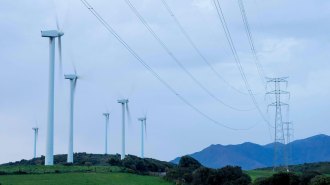 Climate
ClimateHow one device could help transform our power grid
As coal-fired power plants are retired, grid-forming inverters may be key to a future that relies on solar and wind power.
-
 Space
SpaceIndia’s successful moon landing follows recent failures by other countries
The Chandrayaan-3 mission delivered a lander and rover to the moon. Attempts by other countries this year show that getting there is still a challenge.
-
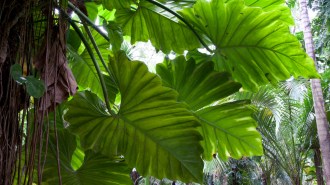 Climate
ClimateSome leaves in tropical forests may be getting too hot for photosynthesis
Climate change may be forcing some tropical leaves to stop photosynthesis and die. It’s still unclear what effect this will have on entire forests.
By Nikk Ogasa -
 Genetics
GeneticsThe Y chromosome’s genetic puzzle is finally complete
New analyses of the human Y chromosome reveal millions of new bases and different locations for the same gene in different people.
-
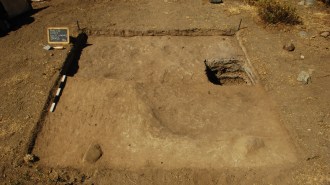 Archaeology
ArchaeologyPre-Inca people stomped salutes to their thunder god on a special dance floor
Excavation of a drumlike platform in the Andes turned up a structure seemingly designed to absorb shocks and emit resonant sounds when stomped upon.
By Bruce Bower -
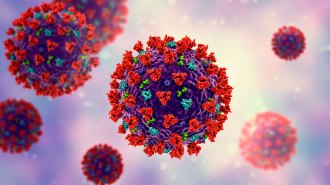 Health & Medicine
Health & MedicineHealth risks can persist at least 2 years after COVID-19, new data suggest
U.S. veterans who tested positive for COVID-19 in 2020 remain at higher risk for many long COVID conditions, from heart disease to gastrointestinal issues.
-
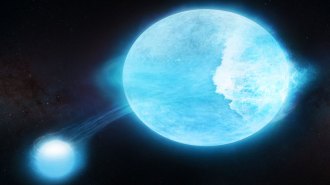 Astronomy
AstronomyThis extreme star might have huge tidal waves
Gravitational forces between two orbiting stars might be creating huge waves of plasma on one of the stars that break and crash to the surface.
By Liz Kruesi -
 Health & Medicine
Health & MedicineWhat should we expect from the coronavirus this fall?
The virus may be reaching a phase of baseline circulation, says epidemiologist Aubree Gordon. But it’s unclear what will happen in the next few months.
-

-
 Astronomy
AstronomyJWST’s hunt for distant galaxies keeps turning up surprises
In its first year, the James Webb Space Telescope has found many galaxies from the early universe that are bigger, brighter and more mature than expected.
-

A key technology could transform the power grid
Editor in chief Nancy Shute discusses ways to upgrade power grids to be more climate friendly.
By Nancy Shute -
 Space
SpaceRecoiling black holes could move at nearly one-tenth the speed of light
Knowing black holes’ speed after being kicked by gravitational waves can reveal how much energy converging black holes can release.
By Nikk Ogasa